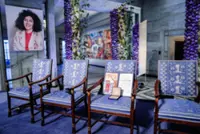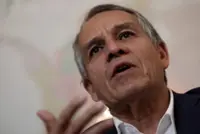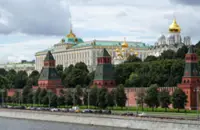PETALING JAYA: While Malaysia ranks among the top 10 most peaceful countries globally, there is room for growth, particularly in enhancing tourist safety, cultural diversity and infrastructure, say stakeholders and the public.
The 2024 Global Peace Index published by the Institute for Economics and Peace in June placed Malaysia in 10th position behind Iceland, Ireland, Austria, New Zealand, Singapore, Switzerland, Portugal, Denmark and Slovenia.
Malaysian Association of Tour and Travel Agents (MATTA) president Nigel Wong called for efforts to improve public amenities, enforce stricter safety measures and upgrade infrastructure to bolster Malaysia’s image as a safe and attractive destination.
By tackling these issues, he said he believes Malaysia can strengthen its position as a premier travel destination while enhancing its global reputation for peace and safety.
“Malaysia’s ranking is already commendable, but there is potential to improve further.
“From a tourist’s perspective, facilities such as well-lit walkways and properly-maintained public areas are essential.
“Stricter enforcement on road safety, particularly in light of recent bus accidents, is also critical to improving our standing,” he said.
On cultural promotion, Wong stressed that Malaysia’s renowned tagline “Malaysia Truly Asia” should reflect a broader and deeper representation of the country’s rich diversity.
“It’s not just about food. We need to highlight our unique heritage, blending customs and traditions to showcase inclusivity and tolerance – values that are in demand globally.”
He also called for a targeted approach in tourism marketing to appeal to specific audience segments.
“Different market segments look for different things, so we need strategic, focused campaigns,” he said.
Hafiz Adlee, 41, a human resources manager, suggested increasing the presence of trained tourist police officers in popular destinations to ensure safety without being intrusive.
“In Melaka, tourist police create a welcoming environment, and similar measures could be replicated nationwide,” he said.
Hafiz said there was also a need for more CCTV cameras, better lighting and multilingual emergency hotlines to instil confidence among tourists.
Natrah Yusuf, 37, a bakery owner, urged more comprehensive promotion of Malaysia’s cultural heritage such as creating accessible cultural villages, with schedules to help tourists plan visits.
“Instead of just focusing on nasi lemak and batik, let’s highlight lesser-known traditions like zapin, joget lambak or the berbalas pantun tradition in Melaka,” she suggested.
She also said regional cuisines like nasi kandar, laksam and kacang pool should be promoted, and traditional kuih made more accessible.
“Tourists visit to immerse themselves in our culture.
“Let’s show them what being Malaysian truly means, so they can better understand and love us,” she added.
Firzan Abdul Aziz, 32, a computer programmer, proposed using social media to showcase Malaysia’s unique culture through engaging content.
These could include fun videos highlighting local greetings like “boss”, “macha”, “bang” and “kak”, and introducing tourists to basic Bahasa Malaysia phrases to enhance their experience, he said.
“When I travel, greeting locals in their language excites me. Tourists visiting Malaysia would feel the same,” he added.
Firzan also called for a dedicated travel mobile application, centralising services from travel agencies to personal guides, allowing tourists to plan their days conveniently.
“Not everyone wants company tours as many prefer tailored experiences,” he said, adding that Malaysia needs to embrace digital tourism strategies.
He said he believes such an initiative could also empower Malaysians to become personal guides, catering to solo travellers seeking authentic, customised journeys.





